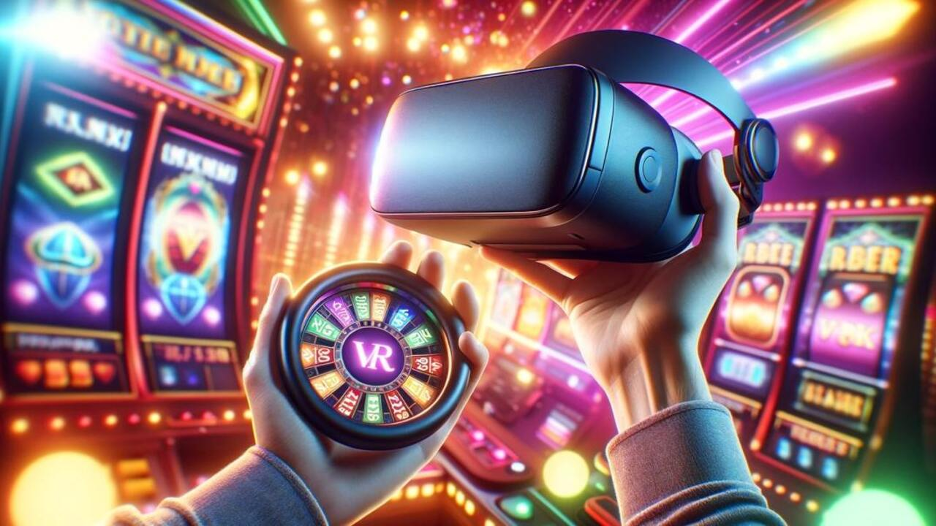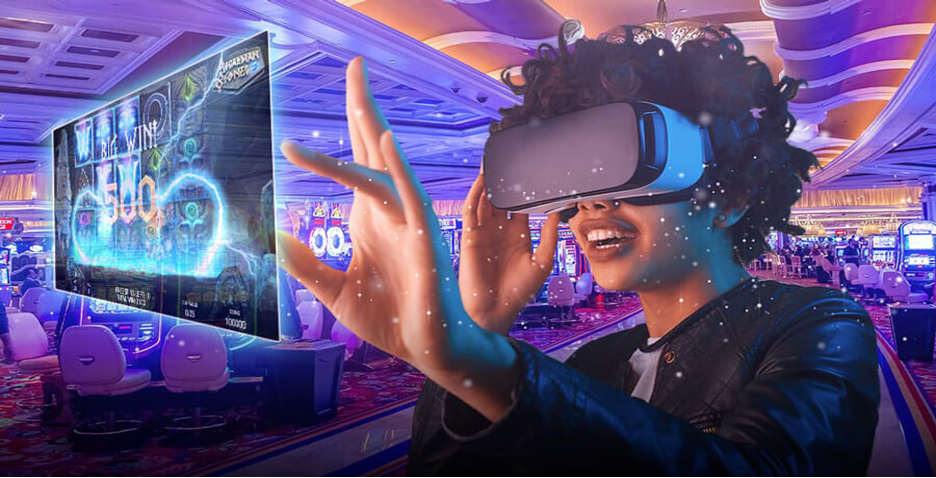Introduction
In today’s digital age, online gaming has become an integral part of entertainment for millions of people worldwide. From casual gamers playing on their smartphones to dedicated enthusiasts competing in massive multiplayer online games, the world of online gaming offers a diverse array of experiences for players of all ages and interests. If you’re looking to explore more about this exciting realm, you can check out the latest trends and updates on the gaming scene, including slot gacor at https://paende.net/ .
Definition Of Online Gaming
Online gaming refers to any form of interactive entertainment that is played over the internet, typically on a computer, console, or mobile device. Unlike traditional single-player video games, online gaming allows players to connect with others from around the world in real-time, competing against or collaborating with one another in virtual environments.
The range of online gaming experiences is vast and includes everything from simple browser-based games and social media games to complex massively multiplayer online role-playing games (MMORPGs) and competitive esports tournaments. With advancements in technology and the proliferation of high-speed internet access, online gaming has grown exponentially in popularity in recent years, becoming a multi-billion-dollar industry that spans the globe.
Importance Of Innovation In Shaping The Future Of Online Gaming
As the online gaming industry continues to evolve, innovation will play a critical role in shaping its future trajectory. With competition fierce among operators vying for players’ attention and loyalty, staying ahead of the curve is essential for success in this dynamic and rapidly changing landscape.
Innovation in online gaming can take many forms, from technological advancements such as virtual reality (VR) and augmented reality (AR) to new gameplay mechanics, social features, and monetization models. By embracing innovation and investing in research and development, online gaming companies can create unique and compelling experiences that capture the imagination of players and keep them coming back for more.

Evolution Of Online Gaming
Historical Background Of Online Gaming
The roots of online gaming can be traced back to the early days of the internet, when simple text-based games and MUDs (multi-user dungeons) provided a glimpse of the interactive entertainment experiences to come. However, it wasn’t until the 1990s that online gaming truly began to take off, thanks in large part to the widespread adoption of personal computers and the emergence of dedicated online gaming services like AOL and CompuServe.
One of the earliest forms of online gaming was multiplayer gaming via local area networks (LANs), which allowed players to connect their computers together and compete against one another in real-time. These LAN parties, as they were often called, laid the groundwork for the development of online multiplayer gaming communities and paved the way for the rise of online gaming platforms like Xbox Live and PlayStation Network.
Growth And Expansion Of Online Gaming
While online gaming as a whole has seen tremendous growth over the years, one segment in particular has experienced explosive expansion: online games. The concept of online games first emerged in the mid-1990s, with the launch of pioneering platforms like The Gaming Club, which offered players the opportunity to play classic games like blackjack, roulette, and slots over the internet.
Initially, online faced skepticism and regulatory challenges as lawmakers grappled with the implications of gaming in a digital age. However, as the industry matured and regulations were put in place to protect players and ensure fair play, the game began to gain acceptance and legitimacy, attracting a growing number of players from around the world.
The growth of online games was further accelerated by advancements in technology, particularly the rise of mobile gaming. With the advent of smartphones and tablets, players can now enjoy their favorite games anytime, anywhere, with just a few taps on their screen. This newfound accessibility opened up new opportunities for operators and players alike, fueling a surge in demand for online games and driving growth within the industry. Additionally, the introduction of slot gacor has provided players with even more engaging and exciting gaming experiences, contributing to the industry’s expansion.
Technological Advancements Driving Innovation In Online Gaming
One of the key drivers of innovation in online gaming is technology. As computing power continues to increase and new technologies emerge, developers are constantly pushing the boundaries of what’s possible in gaming, creating immersive and interactive experiences that were once unimaginable.
One area where technological advancements have had a significant impact is in graphics and visual fidelity. With the advent of high-definition displays, advanced rendering techniques, and powerful graphics cards, modern games are able to deliver stunningly realistic graphics and lifelike animations that rival those of blockbuster movies.
Another area of innovation in online gaming is in virtual reality (VR) and augmented reality (AR). These emerging technologies have the potential to completely transform the way we experience games, immersing players in virtual worlds and blurring the lines between the digital and physical realms. From VR-enabled games that transport players to luxurious resorts and exotic locales to AR-powered experiences that overlay digital elements onto the real world, the possibilities are endless.
Challenges And Opportunities
Regulatory Challenges And The Need For Responsible Gaming Measures
As online gaming continues to grow in popularity, regulatory bodies around the world are faced with the challenge of balancing innovation and consumer protection. While online gaming offers tremendous opportunities for entertainment and economic growth, it also presents unique risks and challenges that must be addressed through effective regulation and responsible gaming measures.
One of the primary concerns for regulators is ensuring that online gaming is conducted in a fair and transparent manner, with safeguards in place to protect players from fraud, manipulation, and other forms of exploitation. This includes measures such as age verification, anti-money laundering controls, and strict licensing requirements for operators.
Security Concerns In Online Gaming Platforms
As the popularity of online gaming continues to soar, so too do the security concerns surrounding gaming platforms. From data breaches to cyberattacks, online gaming platforms face a myriad of threats that can compromise the integrity of their systems and the safety of their players.
One of the most pressing security concerns for online gaming platforms is the risk of data breaches. With millions of players sharing personal and financial information on gaming platforms, these platforms are prime targets for hackers looking to steal sensitive data for malicious purposes. In recent years, there have been several high-profile data breaches in the gaming industry, exposing the personal information of millions of players and causing significant damage to the reputation of affected platforms.
Opportunity For Growth And Expansion In Emerging Markets
While online gaming has already experienced significant growth in mature markets like North America and Europe, there are still ample opportunities for expansion and growth in emerging markets around the world. As internet penetration rates continue to rise and access to smartphones and mobile devices becomes more widespread, millions of people in emerging markets are gaining access to online gaming for the first time.
One of the key drivers of growth in emerging markets is the increasing popularity of mobile gaming, which offers a convenient and accessible way for people to enjoy their favorite games on the go. In regions like Asia, Latin America, and Africa, where mobile devices are often the primary means of accessing the internet, mobile gaming has become a major driver of growth and adoption.

Conclusion
The dynamic landscape of the online gaming industry has been a fascinating journey, marked by exponential growth, security challenges, and promising opportunities. As we recap the key points discussed, it’s evident that online gaming has evolved from its humble beginnings to become a global phenomenon that transcends borders and demographics. Additionally, the emergence of slot gacor games has added another layer of excitement and engagement to the gaming experience, captivating players worldwide.




